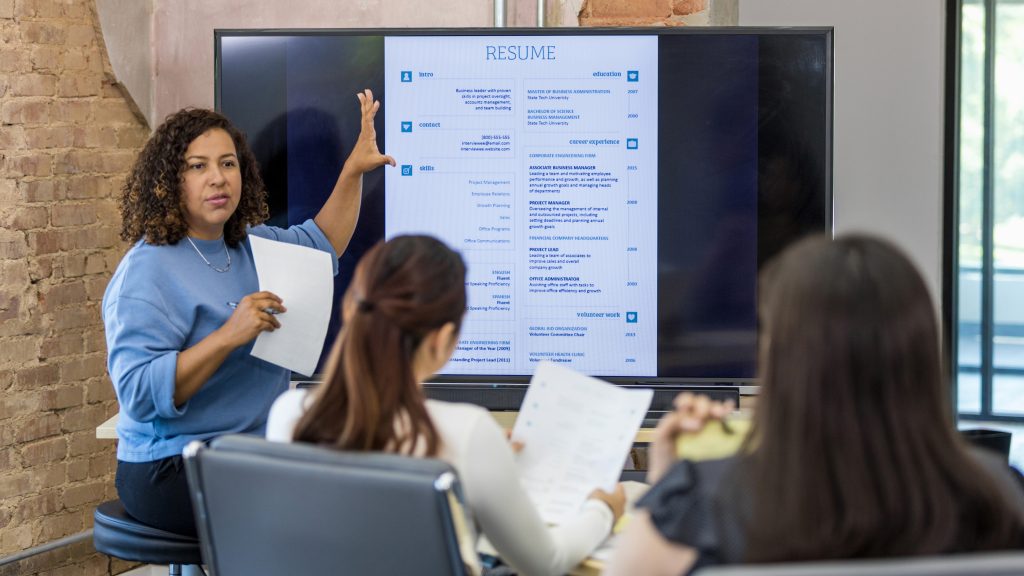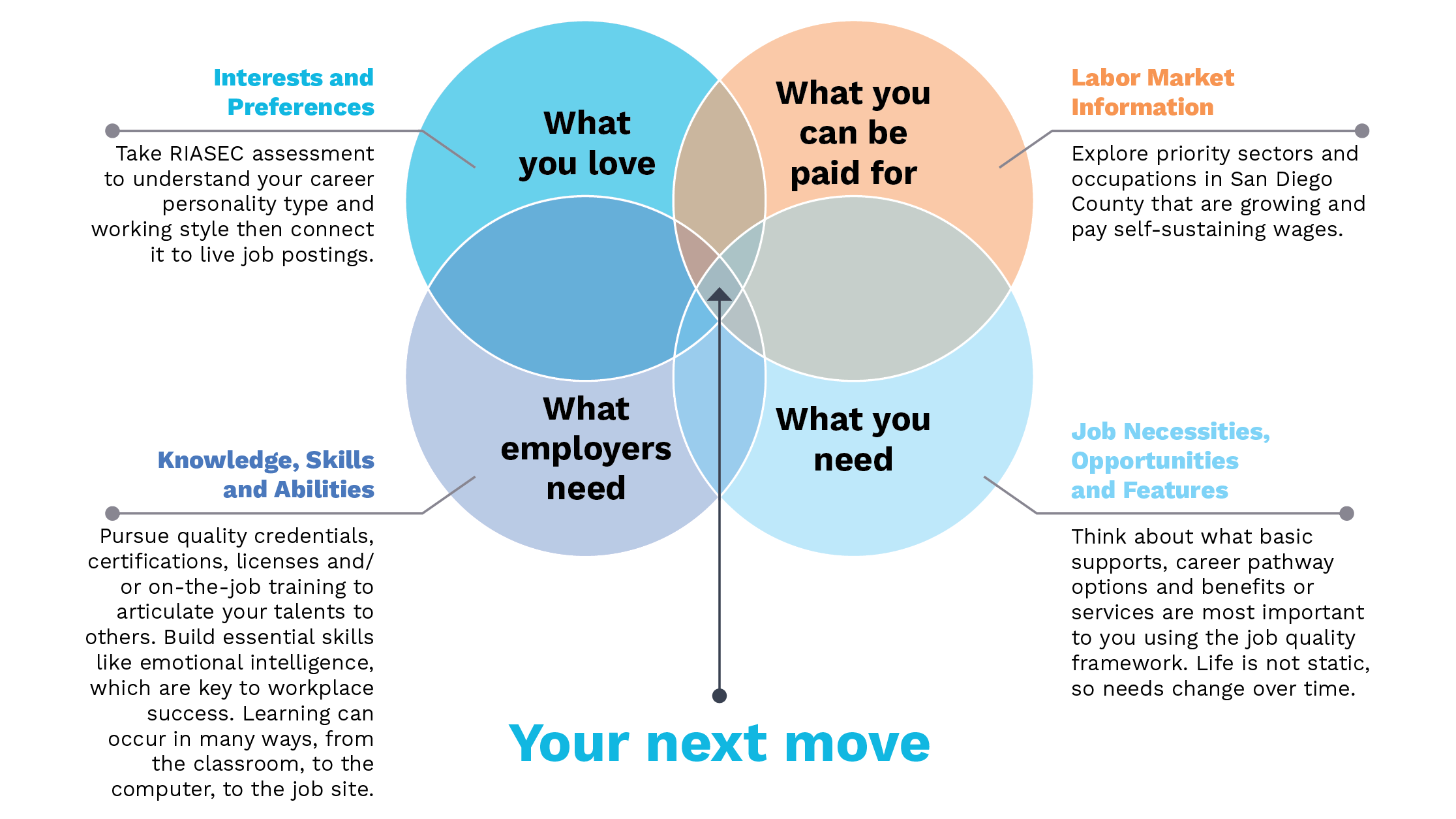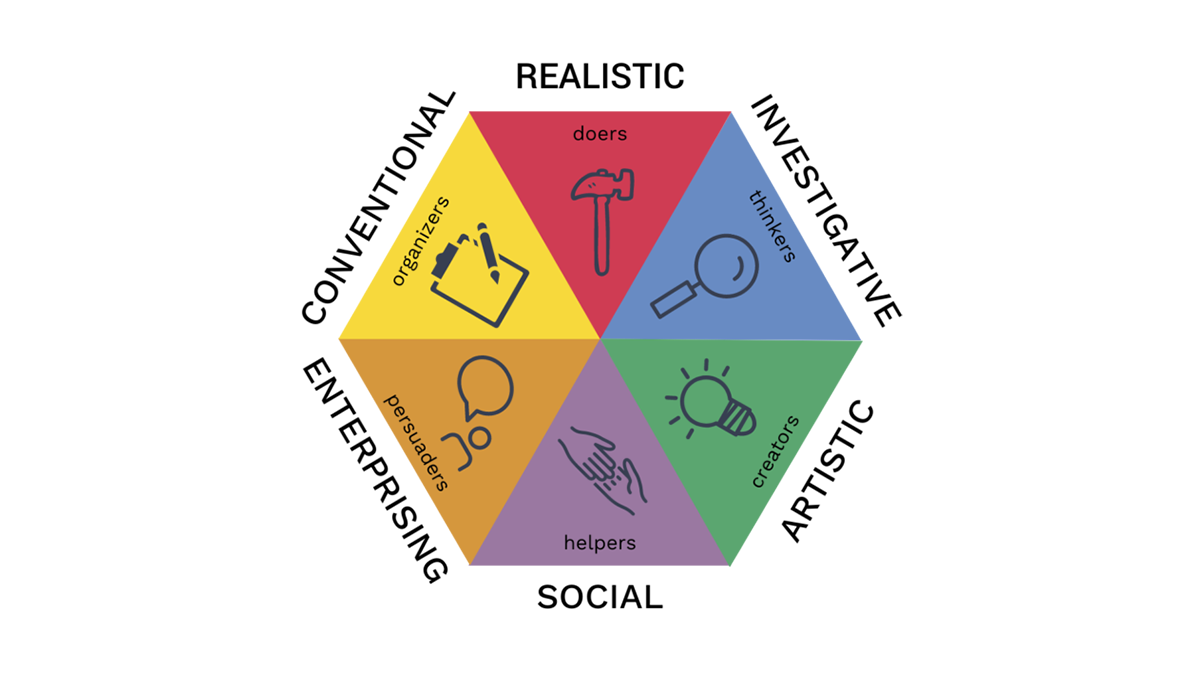
Are you considering a career transition? Whether you are looking to enter a new industry, change roles or reenter the workforce, the challenging journey of transitioning careers can also be an opportunity for personal and professional growth. The following steps, tools and resources can guide you to making a successful career transition.
Step 1: Self-reflection
Before you make any decisions, think of the reasons that led you to wanting to transition careers. Do you want more flexibility in your schedule? A new challenge? A different career pathway entirely? Regardless of the reason, reflect on where you are now and where you want to be. To guide your self-reflection, use our version of the ikigai model to help decide what your next step is in the world of work.
Step 2: Identifying your interests
Not sure if you will enjoy working in a certain field? By identifying your vocational interests using the RIASEC framework, you can get a better sense of how you might fit in an unfamiliar profession. Get to know which of these six themes, or Holland Codes, fit you best: Realistic, Investigative, Artistic, Social, Enterprising and Conventional. These codes will help you discover career pathways that best align with your interests and preferences. To further explore these interests and understand how they can relate to careers, attend a Connecting Interests with Careers workshop.
To further explore these interests and understand how they can relate to careers, attend a Connecting Interests with Careers workshop.
Step 3: Research and exploration
Once you have identified your career interest themes, it is time to research and explore the different careers that align with them. Understanding the current labor market can help you make an informed decision about which career to pursue. The interest assessment on Career Coach helps you discover interest-aligned careers and access San Diego County-specific labor market information.
For more in-depth usage of Career Coach and its labor market information, register for the Online Career Exploration workshop.
Step 4: Translating your skills
Effectively communicating your skills to potential employers is critical during a career transition. Here are some key strategies to help you translate your skills:
- Learn the jargon by familiarizing yourself with industry-specific language to demonstrate your understanding of the new field
- Emphasize your essential skills
- Based on our research, San Diego employers prioritize six groups essential skills when hiring: communication, collaboration, dependability, creative and critical thinking, resourcefulness and emotional intelligence. Learn how to effectively write about and articulate these skills in the Essential Skills for Workplace Success workshop
- Update your resume
- While most people are familiar with the chronological resume, there are two other types, functional and combination. For a transitioning job seeker, a functional resume is key as it focuses on your transferable skills. If you tailor your resume to the job description and focus on connecting your current skillset to the employer’s desired skillset, it will improve your chances of beating the applicant tracking system (ATS). For guidance on creating an effective resume, transferring your skills and beating the ATS, attend a Resume Building workshop
Step 5: Get that job!
Now it is time to put all your hard work into action. After identifying your needs and interests, researching, and translating your skills, it is time to apply, network and interview. Here are some tips for success:
- Applying
- Research the company thoroughly before applying to ensure their mission and needs align with your values and skillset. Remember to customize your supporting documents, such as your resume and cover letter, to align with their needs and goals
- Networking
- Establish connections with professionals in the career or field you are transitioning to. Often, these professionals can connect you to hiring managers or even recommend you for positions
- Interviewing
- Be confident in your skills! Practice the most common interview questions and job-specific questions so you can ace that interview. Receive in-person support by attending a job Interview Preparation workshop
The job search process can be long and challenging, so remember to be patient and persistent. Be confident in your abilities and don’t hesitate to reach out for support. For additional resources, visit workforce.org/mynextmove.
